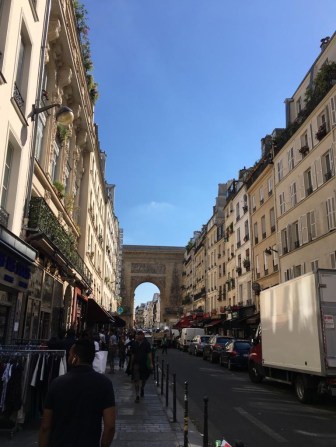I have been asked to post my list of movies watched in 2021. I don’t recommend all of them, of course – some were real stinkers – but feel free to contact me about individual movies, or any particular theme or thread you are interested in pursuing in your own viewing. The film noir series mostly belonged to 2020, but here are all 133 movies from the year just past:
December 2021 (20)
Sibelius 1 and 2 (Christopher Nupen)
Dark Victory (Edmund Goulding, 1939)
Once Upon a Time in the West (Sergio Leone, 1969)
Johnny Guitar (Nicholas Ray, 1954)
Carnal Knowledge (Mike Nichols, 1971)
In and of Itself (Frank Oz, 2020)
The Card Counter (Paul Schrader, 2021)
Five Easy Pieces (Bob Rafelson, 1970)
Atlantic City (Louis Malle, 1980)
Old (M. Night Shyamalan, 2021)
The Many Saints of Newark (Alan Taylor, 2021)
The Guns of Navarone (Lee J. Thompson, 1961)
The Lady from Shanghai (Orson Welles, 1947)
The Hand of God (Paolo Sorrentino, 2021)
Annette (Leos Carrax, 2021)
Halloween Kills (David Gordon Green, 2021)
Antlers (Scott Cooper, 2021)
Lamb (Valdimar Johansson, 2021)
Last Night in Soho (Edgar Wright, 2021)
Two Weeks in Another Town (Vincente Minelli, 1962)
November 2021 (19)
Don’t Look Now (Nicolas Roeg, 1973)
The Comfort of Strangers (Paul Schrader, 1990)
Train to Busan (Yeon Sang-ho, 2016)
The Wings of the Dove (Iain Softie, 1997)
The Mambo Kings (Arne Glimcher, 1992)
Stalag XVII (Billy Wilder, 1952)
The Eiger Sanction (Clint Eastwood, 1975)
Top Hat (Mark Sandrich, 1935)
Night of the Iguana (John Huston, 1964)
Ball of Fire (Howard Hawks, 1942)
Michael Clayton (Tony Gilroy, 2007)
First Blood (Ted Kotcheff, 1982)
Land of Mine (Martin Zandvliet, 2015)
Never Ending Story (Wolfgang Peterson, 1984)
Across 110th Street (Barry Shear, 1972)
The Goonies (Richard Donner, 1985)
Listening Through a Lens (Christopher Nupen documentary)
A Bigger Splash (Luca Guadagnino, 2015)
When We Were Kings (Leon Gast, 1996)
October 2021 (13)
The Most Beautiful Boy in the World (Kristina Lindstrom; Kristian Petri, 2021)
Human Factors (Ronny Trockers, 2021)
Bergman Island (Mia Hansen-Love, 2021)
Things We Say, Things We Do (Emanuele Mouret, 2020)
The Spy Who Came in from the Cold (Martin Ritt, 1965)
Freud (John Huston, 1961)
Halloween (John Carpenter, 1978)
Halloween 2 (Rick Rosenthal, 1981)
Halloween H20 (Steve Miner, 1998)
Halloween (David Gordon Greene, 2018)
The French Dispatch (Wes Anderson, 2020)
The Fog (John Carpenter, 1980)
Crimson Peak (Guillermo del Toro, 2020)
September 2021 (8)
The Mummy (Karl Freund, 1932)
The Creature from the Black Lagoon (Jack Arnold, 1954)
Darkest Hour (Joe Wright, 2017)
Bluebeard’s Eighth Wife (Ernst Lubitsch, 1938)
Frankenstein (James Whale, 1931)
The Taking of Pelham 123 (Joseph Sargent, 1974)
Jackie Brown (Quentin Tarantino, 1997)
Pulp Fiction (Quentin Tarantino, 1994)
August 2021 (13)
Midnight (Marshall Leissen, 1939)
Crossfire (Edward Dimitryk, 1947)
Mr and Mrs Smith (Alfred Hitchcock, 1941)
My Man Godfrey (Gregory LaCava, 1936)
Cast a Dark Shadow (Lewis Gilbert, 1955)
Master and Commander (Peter Weir, 2003)
The Killers (Robert Siodmak, 1946) (repeat)
The Ox-Bow Incident (William Wellman, 1942)
Macao (Josef von Sternberg, 1952)
The Beckoning Silence (Louise Osmond, 2007)
Rollerball (Norman Jewison, 1975)
Kill Bill (Quentin Tarantino, 2003)
Kill Bill vol 2 (Quentin Tarantino, 2004)
July 2021 (5)
The Last Detail (Hal Ashby, 1973)
California Split (Robert Altman, 1974)
Odds Against Tomorrow (Robert Wise, 1959)
The Celluloid Closet (Epstein and Friedman, 1995)
On Dangerous Ground (Nicholas Ray, 1952)
June 2021 [1]
To Catch a Thief (Alfred Hitchcock, 1955)
May 2021 (7)
Wonder Wheel (Woody Allen, 2017)
Citizen Kane (Orson Welles, 1942)
The Four Seasons Motel (Andrew Jacobs, 2008)
The Truman Tapes (Ebs Burnough, 2020)
Mank (David Fincher, 2020)
The Texas Chainsaw Massacre (Tobe Hooper, 1974)
The Great McGinty (Preston Sturges, 1940)
April 2021 (12)
Romance (Catherine Breillart, (1999)
Relic (Natalie Erika James, 2020)
Some Like It Hot (Billy Wilder, 1959)
Jaws (Steven Spielberg, 1975)
The Bee Gees: How Can You Mend A Broken Heart (Frank Marshall, 2020)
The Dissident (Bryan Fogel, 2020)
The Lost Weekend (Billy Wilder, 1946)
The Promise: The Making of Darkness on the Edge of Town (Thom Zimny, 2010)
A New Leaf (Elaine May, 1971)
Shanghai Express (Josef von Sternberg, 1935)
Paddington 2 (Paul King, 2017)
The Old Man and the Gun (David Lowery, 2018)
March 2021 (12)
Barefoot in the Park (Gene Saks, 1967)
The Ministry of Fear (Fritz Lang, 1944)
Lawrence of Arabia (David Lean, 1962)
A Face in the Crowd (Elia Kazan, 1957)
The Dig (Simon Stone, 2021)
On Chesil Beach (Dominic Cooke, 2017)
Mitt (Greg Whiteley, 2014)
The Nightcomers (Michael Winner, 1971)
Never on Sunday (Jules Dassin, 1960)
Zorba the Greek (Mikael Cacoyannis, 1964)
Logan Lucky (Steven Soderbergh, 2017)
The Chase (Arthur Penn, 1966)
February 2021 (9)
The Cameraman (Buster Keaton/Edward Sedgewick, 1928)
She Done Him Wrong (Lowell Sherman, 1933)
I’m No Angel (Wesley Ruggles, 1933)
Doctor Zhivago (David Lean, 1965)
Creed 2 (Stephen Caple Jr, 2018)
Belle of the Nineties (Leo McCarey, 1934)
The Hunt for Red October (John McTiernan, 1990)
Pick Up on South Street (Samuel Fuller, 1953)
Goin’ to Town (Alexander Ross, 1935)
January 2021 (14)
1917 (Sam Mendes, 2019)
Truth (James Vanderbilt, 2015)
Bombshell (Jay Roach, 2019)
The Blob (Irvin Yeaworth, 1958)
Godzilla (Gojira) (Ishiro Honda, 1954)
Finding Vivian Maier (John Maloof, 2014)
Café Nagler (Mor Kaplanski, 2016)
Boy on a Dolphin (Jean Negulesco, 1957)
Clue (Jonathan Lyn, 1985)
Casablanca (Michael Curtiz, 1943)
Carnival of Souls (Herk Harvey, 1962)
John McEnroe – In the Realm of Perfection (2018)
Dawson City: Frozen Time (Bill Morrison, 2016)
Make Way for Tomorrow (Leo McCarey, 1937)
The Seven-Year Itch (Billy Wilder, 1955)












